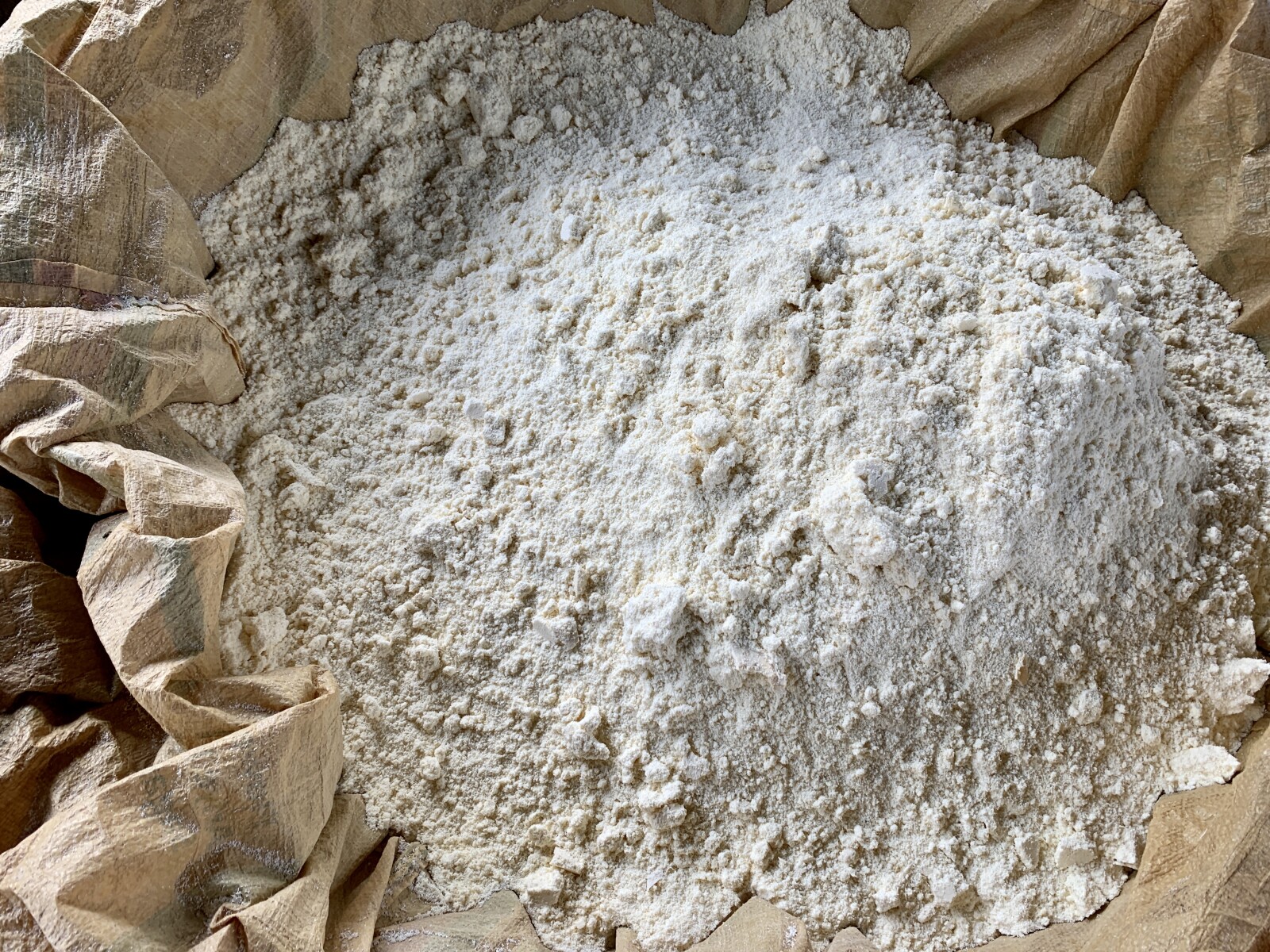Explosive Talcum Powder Lawsuits Rock Johnson & Johnson
This article delves into the unfolding legal drama surrounding Johnson & Johnson's controversial talcum powder products. Allegedly linked to ovarian cancer, these products have incited a cascade of lawsuits against the multinational corporation. We explore the origins, impact, and current state of these legal battles while also examining the company's staunch denial of any wrongdoing. This raises pertinent issues about corporate ethics, health risks, and the role of research in shaping product safety narratives.

Key Takeaways
Johnson & Johnson's ongoing talcum powder lawsuits serve as a pivotal example of corporate responsibility and the potential consequences of misconduct. Despite refuting the alleged link between its talcum products and cancer, the company faces mounting legal repercussions and a tarnished reputation. The controversy underscores the importance of ethical business practices and transparency. The future of these lawsuits may significantly impact not only Johnson & Johnson, but also the wider corporate landscape.
The Inception of Talcum Powder Lawsuits
The inception of talcum powder lawsuits can be traced back to 2009, when Deane Berg filed the first legal action against Johnson & Johnson, asserting a connection between the company's talcum powder and ovarian cancer. This landmark case set a precedent, opening a floodgate of litigation against the corporation. The legal implications of these lawsuits are profound, setting the stage for a broader discussion about consumer safety and corporate responsibility. Additionally, these lawsuits have had a significant impact on public health discourse, pushing the potential health risks associated with talcum powder use into the global spotlight. They underscore the necessity for rigorous product testing and transparent communication from companies about potential health risks associated with their products.
The Impact of Deane Berg’s Lawsuit
While Deane Berg's lawsuit against Johnson & Johnson initially seemed to be a singular event, it ultimately set a significant precedent, leading to thousands of subsequent lawsuits and drawing attention to the potential risks associated with talcum powder use. The impact of Deane Berg's lawsuit was monumental in bringing the issue to light and encouraging others to seek justice. This case outlined the potential dangers of talcum powder, which previously flew under the radar of consumers. The significance of landmark verdicts following Berg's lawsuit cannot be overstated. These verdicts, often involving substantial monetary awards, have not only offered some measure of justice to the victims but also underscored the seriousness and validity of their claims, further shaking the foundation of Johnson & Johnson's reputation.
The Rising Tide of Legal Complaints Against Johnson & Johnson
As Johnson & Johnson continues to grapple with a surge of litigation, it has become increasingly apparent that the volume of legal complaints against the company is escalating, originating from allegations of a correlation between their talcum powder products and ovarian cancer. The legal implications for Johnson & Johnson are substantial, with thousands of lawsuits and billions of dollars in verdicts jeopardizing the company's financial stability. Furthermore, these lawsuits dramatically affect consumer trust. The belief that Johnson & Johnson might have prioritized profits over public safety could theoretically cause irreparable harm to the company's reputation. As more individuals step forward with their allegations, the company faces a strenuous struggle in regaining public trust while concurrently managing the swelling legal challenges.
Class Action Lawsuits and Their Influence
Class action lawsuits, a form of collective legal action, have significantly influenced the talcum powder litigation against Johnson & Johnson, and these cases have spotlighted the potential risks associated with the company's product. The influence of media coverage has been pivotal in amplifying these concerns, leading to heightened public scrutiny. This media attention has not only encouraged individual claimants to come forward but also galvanized class actions, posing a considerable threat to Johnson & Johnson. This multifaceted legal dynamic has had a profound impact on consumer trust. As awareness has grown of the alleged links between talcum powder and ovarian cancer, many consumers have begun to question the safety of Johnson & Johnson's products, triggering a significant shift in public sentiment towards the company.
The Role of Research in Talcum Powder Cancer Cases
In order to fully understand the magnitude of the talcum powder cancer lawsuits against Johnson & Johnson, it is essential to delve into the role that decades of scientific research have played in these cases. These research findings have significantly impacted public health policies, prompting a shift in consumer behavior and product safety regulations. Studies have consistently shown a link between talcum powder usage and an increased risk of ovarian cancer, findings that Johnson & Johnson were reportedly aware of, yet failed to disclose. This scientific evidence has been instrumental in shaping legal outcomes, as it formed the basis of the allegations that led to multi-million-dollar verdicts against the company. Thus, research has been pivotal in holding corporations accountable for public health.
How Johnson & Johnson Responded to Research Findings
Despite mounting evidence linking talcum powder to ovarian cancer, Johnson & Johnson staunchly denied the allegations and continued marketing their product without issuing consumer warnings. Johnson & Johnson's response to research findings has been a subject of major controversy. The company did not alter its marketing strategies or product labels, even as studies consistently pointed to a potential health risk. Instead, they stood by the safety of their product, arguing the research linking talcum powder to ovarian cancer was flawed. The role of biased research in the talcum powder controversy also came into play, with accusations that Johnson & Johnson funded studies that provided results in their favor. This response has sparked criticism and led to numerous lawsuits against the company.
High-Profile Lawsuit Verdicts and Their Repercussions
The high-profile lawsuit verdicts involving Johnson & Johnson's talcum powder have had wide-ranging repercussions, both legally and socially, as they brought significant attention to the potential health risks associated with the product. The substantial media coverage these lawsuits received played a pivotal role in amplifying the issue, thereby influencing public perception and damaging consumer trust in the company's products. These verdicts shed light on the company's failure to warn consumers about the possible health risks, thereby sparking a conversation about corporate responsibility. The impact on consumer trust has been considerable, with many questioning the safety of the company's products. This has prompted calls for increased transparency and regulation in the industry, underlining the lasting impact of these lawsuits.
The Effect of Lawsuits on Public Awareness
Numerous lawsuits against Johnson & Johnson, coupled with extensive media coverage, have significantly heightened public awareness about the potential health risks associated with talcum powder use. These cases have undeniably affected public perception and trust in Johnson & Johnson, once a stalwart of personal care products. With each lawsuit, the public's trust in the safety of the company's products diminishes, leading to a call for more stringent product regulation in the cosmetic industry. This wave of litigation has highlighted the need for greater transparency and stricter oversight in the industry, causing consumers to question not only the safety of talcum powder but also the integrity of the corporations that manufacture and distribute such products.
The Financial Implications of Talcum Powder Verdicts
Over $5 billion in court-ordered damages have been levied against Johnson & Johnson in relation to talcum powder lawsuits, highlighting the severe financial impact of these verdicts on the company. The financial consequences for Johnson & Johnson are significant, affecting not only their bottom line but also their reputation and consumer trust. These lawsuits have raised questions about the long-term implications for consumer safety, potentially prompting regulatory changes and increased transparency in product labeling. The financial implications extend beyond the immediate monetary damages, as Johnson & Johnson may face future lawsuits and increased regulatory scrutiny. As a result, the company must navigate the challenges of restoring public confidence while managing the economic repercussions of these verdicts.
Unveiling Internal Evidence Against Johnson & Johnson
Frequently, internal company documents have surfaced, implicating Johnson & Johnson in a decades-long knowledge and concealment of the potential risks associated with talcum powder use. These documents are central to the lawsuits filed against the company, significantly weakening Johnson & Johnson's legal defense. The revealed evidence suggests that the company knew about the potential carcinogenic effects of their product but chose not to share this information with consumers, thus breaching their trust. This revelation has had a severe impact on consumer trust, with many feeling deceived and betrayed. The fallout from the lawsuits and the unveiled internal evidence continues to tarnish Johnson & Johnson's reputation and raises serious questions about corporate responsibility and transparency in the industry.
Johnson & Johnson's Denial and Defense Strategy
Despite the mounting lawsuits and damaging evidence, Johnson & Johnson has consistently maintained a robust defense strategy, anchored in firm denial of any correlation between their talcum powder products and the incidence of ovarian cancer. The cornerstone of Johnson & Johnson's legal strategy has been to challenge the scientific validity of the claims, often hiring experts to dispute the research linking their product to cancer. This vehement denial, however, has had a significant impact on public perception. While some consumers remain loyal, others have become skeptical, resulting in a blow to the company's reputation and a decline in sales. Despite the controversy, Johnson & Johnson continues to stand by the safety of its products, emphasizing their commitment to rigorous testing and consumer health.
The Role of Biased Research in the Talcum Powder Controversy
In our exploration of the talcum powder controversy, we must critically examine the role of biased research that has muddied the waters of this contentious issue. The role of industry influence cannot be ignored, as some studies used to defend the safety of talcum powder have been backed by Johnson & Johnson, leading to questions about scientific integrity. This has created a situation where the impartiality of research findings is under scrutiny. Critics argue that some scientific studies may have been manipulated or selectively reported to downplay the potential risks associated with talcum powder usage. This raises serious concerns about the influence of corporate interests on scientific research, and the potential for bias in studies funded by entities with a vested interest in the outcome.
The Current State of Talcum Powder Lawsuits Against Johnson & Johnson
Undeniably, Johnson & Johnson is currently embroiled in numerous lawsuits concerning its talcum powder product, and the legal battles show no sign of abating. These lawsuits primarily revolve around the alleged link between the product and ovarian cancer, and the role of expert witnesses has been pivotal in shaping the outcomes. Such experts have presented compelling scientific evidence, highlighting the potential risks associated with talcum powder usage. Despite some verdicts being reversed due to jurisdictional issues, it is clear that the future of talcum powder litigation is set to be a contentious one. With thousands of cases pending, the company faces an uphill battle as it continues to defend the safety of its talcum powder products amidst rising public scrutiny.
Frequently Asked Questions
How Has Johnson & Johnson's Stock Been Affected by the Talcum Powder Lawsuits?
Investor reactions to the talcum powder lawsuits have significantly impacted Johnson & Johnson's stock performance. Hundreds of lawsuits claiming the company's talc products cause cancer have led to substantial financial loss, damaging its market reputation. Consequently, the company's stock value has experienced notable volatility. Ultimately, the lawsuits' impact continues to pose a risk to Johnson & Johnson's financial stability and investor confidence, causing fluctuations in its stock prices.
Have Any Other Companies Been Implicated in Talcum Powder Cancer Lawsuits?
While Johnson & Johnson has been the primary focus of talcum powder lawsuits, other companies have also faced legal scrutiny. International lawsuit implications have broadened to include firms such as Colgate-Palmolive and Imerys Talc America. These lawsuits have prompted an industry-wide consideration of talcum powder alternatives, with some companies already introducing cornstarch-based products as a safer option.
Are There Any Regulations Currently Under Development to Address Talcum Powder Safety Concerns?
In response to the growing concerns over talcum powder safety, regulatory measures are being developed. The U.S. Food and Drug Administration (FDA) is reviewing the potential health risks associated with the product. Further, lawmakers are considering legislation to enhance safety standards for cosmetic products, which would include talcum powder. The ultimate aim is to ensure safer use of such products and protect consumers from potential health risks.
How Has the Repeated Litigation Affected Johnson & Johnson's Reputation and Brand Image?
The repeated litigation has significantly impacted Johnson & Johnson's reputation, eroding customer trust in the brand. The company's failure to disclose potential risks associated with talcum powder has raised serious ethical concerns. This has necessitated a shift in Johnson & Johnson's marketing strategies, moving towards transparency and re-establishing credibility. However, the long-term impact on the brand image is yet to be fully determined as the Lawsuit Legit continues.
Has the Talcum Powder Controversy Led to Any Changes in the Cosmetic and Personal Care Product Industry?
The talcum powder controversy has significantly impacted the cosmetic and personal care product industry. A notable shift in consumer awareness regarding product safety and ingredients has occurred, leading to increased scrutiny of products and their potential health risks. This has also fueled demand for alternative products, with consumers seeking safer, more natural options. Industry players are responding by reformulating products and investing in research for safe alternatives, marking a significant shift toward greater transparency and safety.
Conclusion
Johnson & Johnson's ongoing talcum powder lawsuits serve as a pivotal example of corporate responsibility and the potential consequences of misconduct. Despite refuting the alleged link between its talcum products and cancer, the company faces mounting legal repercussions and a tarnished reputation. The controversy underscores the importance of ethical business practices and transparency. The future of these lawsuits may significantly impact not only Johnson & Johnson, but also the wider corporate landscape.

This post has been generated by AI and was not reviewed by editors. This is Not legal advice. Please consult with an attorney.




